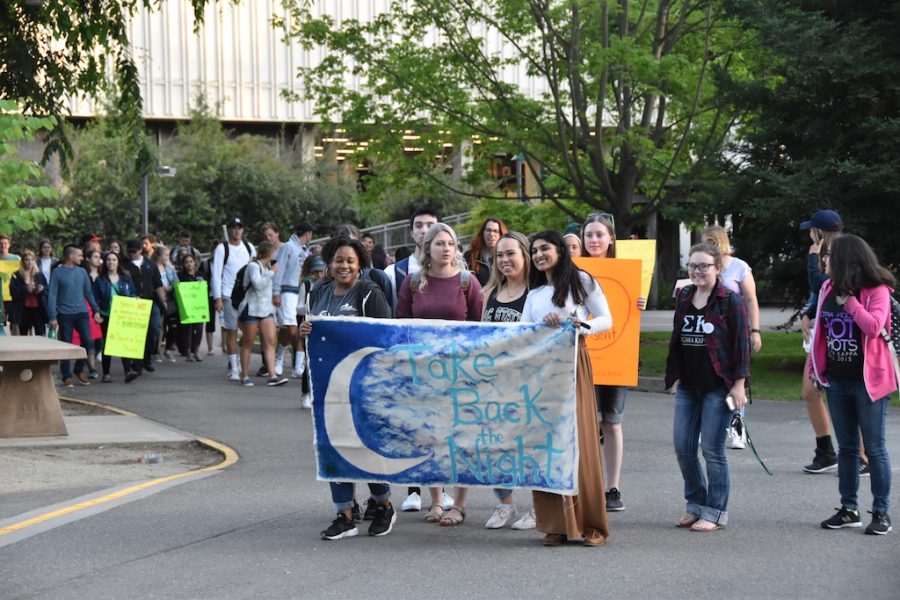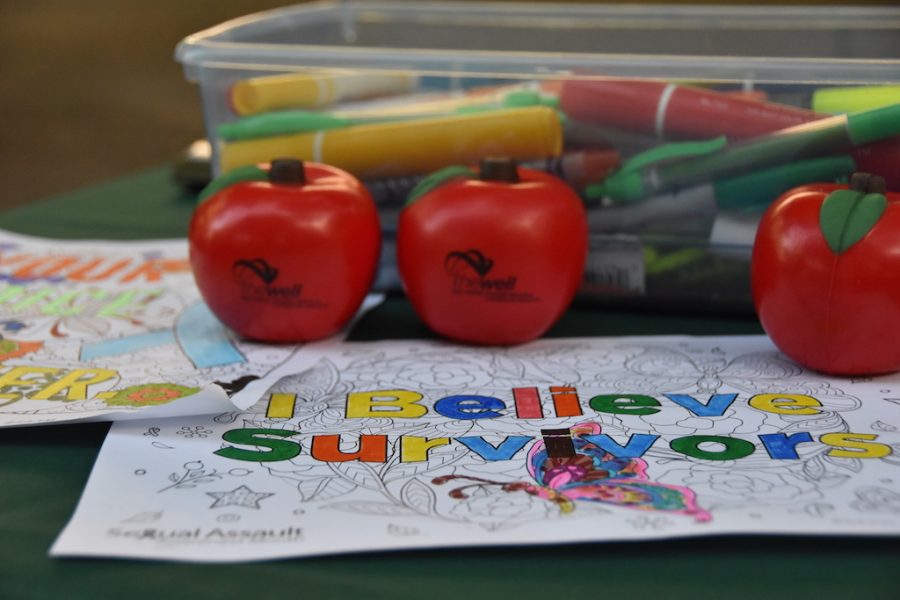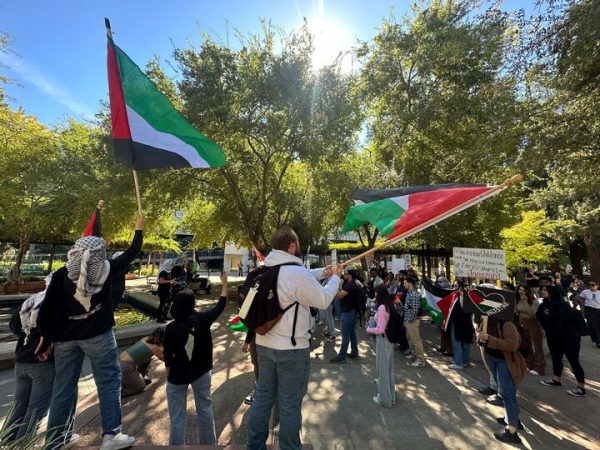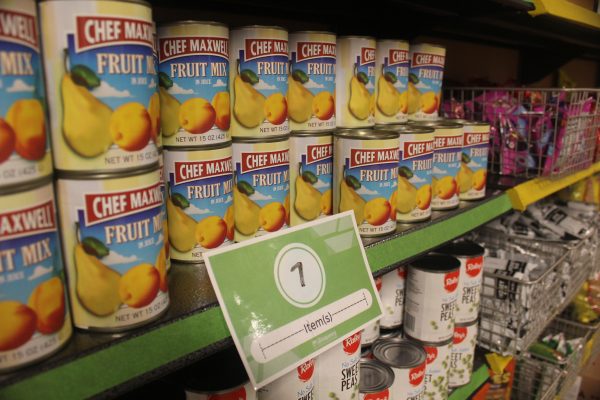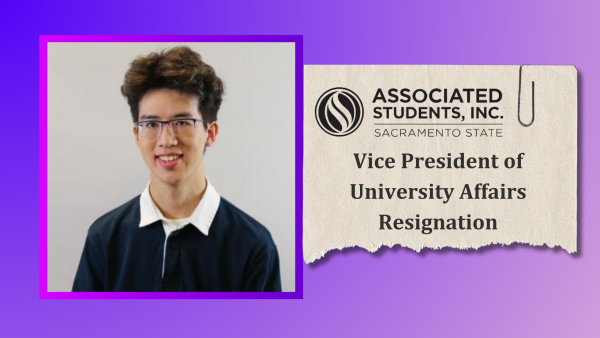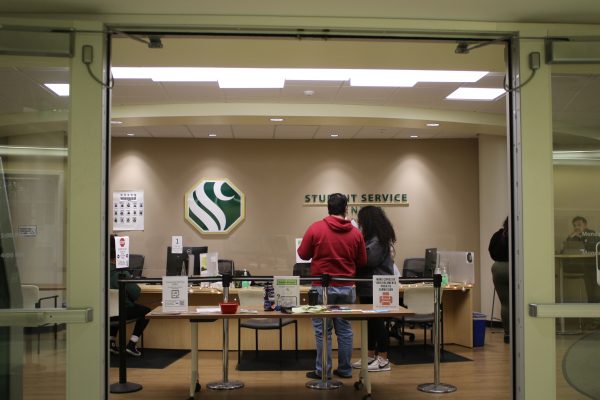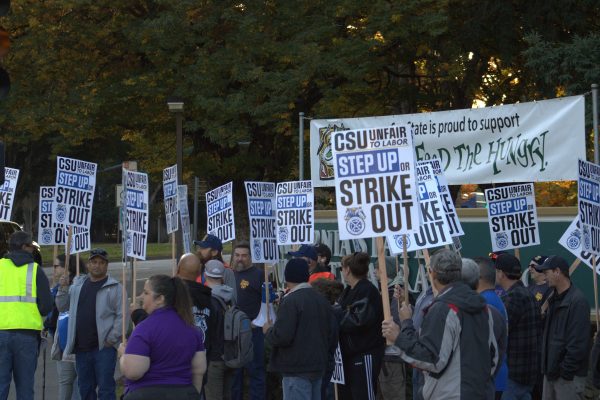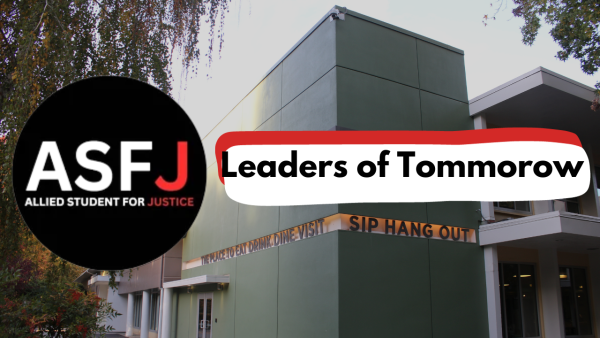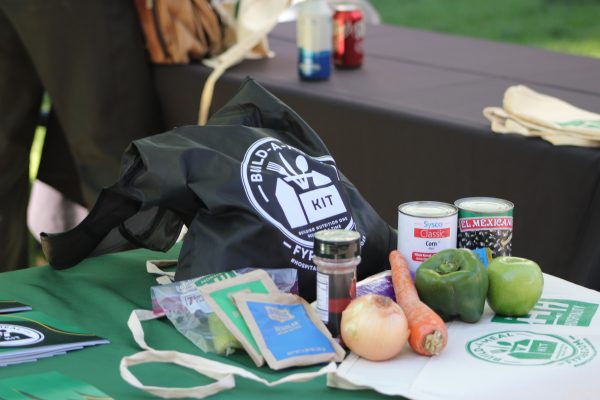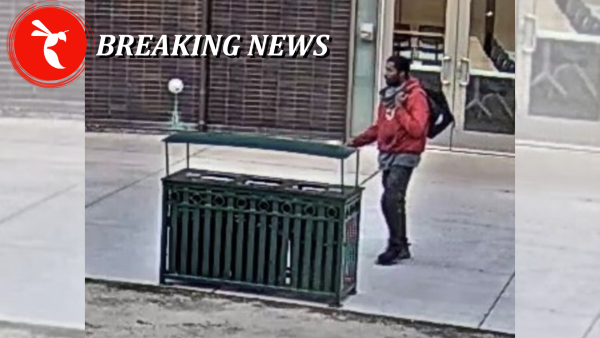Sac State students march in the 17th annual Take Back the Night
Vincent Moleski - The State Hornet
Bajha Jordan, left, with banner, the student manager of Health and Wellness Promotion, leads a crowd of students across campus. The Healthy Relationships program at Sac State held a Take Back the Night march on Thursday, April 26.
April 27, 2018
Sacramento State students and administration held the 17th annual Take Back the Night walk on campus on Thursday, April 26 to show support for survivors of sexual assault and to speak out against rape.
The march was organized by the Healthy Relationships program within Health and Wellness Promotion, which offers various sexual health services as a part of Student Health and Counseling Services.
Bajha Jordan, the lead organizer of the event and the student manager for Health and Wellness Promotion, led student marchers from the library quad, over to the edge of campus by the dorms, and back around to the library quad.
“The message that we sent today is really to just encourage all, as a campus, to be a community and to support one another, because it doesn’t take one person to stand up against sexual violence, this takes all of us,” Jordan said. “I think at the event overall, people feel more empowered and more inspired to share their story, and also to know there is support and care available for them.”
In attendance were representatives from WEAVE, the organization previously known as Women Escaping a Violent Environment, a Sacramento sexual assault crisis center, and from My Sister’s House, a domestic abuse crisis center aimed at Asian and Pacific Islander women, to provide resources for any students who may have experienced sexual assault.
Story continues below
The keynote address, given by Calla Gilligan, a representative from WEAVE, began by pointing out all the crisis counselors in attendance for any students who may need their services.
“Sexual assault does not discriminate against anyone’s gender, age, status or sexual identity, although it does affect certain groups disproportionately,” Gilligan said.
Gilligan went on to explain that the one common theme among survivors is “shame and self-blame.”
Gilligan stressed the importance of consent and listening to sexual assault survivors when they come forward.
“You can normalize and validate their healing process, relieve the shame or blame they may be feeling,” Gilligan said. “Remind them by saying ‘You are not alone. I believe you. You are not going crazy. It is not your fault. Whatever you are feeling, it is OK.’ ”
Neve Eustace, a finance major, shared her own story of sexual assault along with other students.
Eustace said she was at a house party in 2017 when she was raped by a student from a fraternity at Sac State.
A professor alerted Title IX authorities when Eustace told him, but she did not follow up and report the assault at first out of fear of harming the fraternity’s reputation, Eustace said.
After Eustace told another member of the same fraternity that she was raped, the student was expelled first from the fraternity, and later, after she reported him to Title IX, from Sac State and all other CSUs, Eustace said.
“The thought that there are survivors out there who go through this with no one in their court blows my mind,” Eustace said. “Some of you might even be in this crowd. Don’t be afraid to report. Get your justice.”
Organizers set up a large infographic detailing sexual assault statistics from the Rape, Abuse, and Incest National Network, including one which showed that 23.1 percent of female and 5.4 percent of male undergraduate students experience rape or sexual assault, and others that showed that transgender or gender nonconforming students were disproportionately at risk.
Alexandria Moran, a deaf studies major, who said she earned class credit for attending the march, said she knew women from college who had been assaulted.
“I think this kind of stuff really helps to destigmatize victims,” Moran said. “It really helps to just say ‘it doesn’t matter if you’re sober, if you’re a slut, if you’re immodest.’ Everybody can be in danger and we need to do more to prevent that.”
David Thompson, a film studies major who attended with Moran, said that while sexual assault can be difficult to see on campus, he was not surprised by the high rates of assault of college-age women, and that he wanted to help.
“They’ve been through some rough situations that were not OK and they need to know that it’s not their fault, they need to know that there’s a community to come help them, and they need to know that we’re here for them,” Thompson said.
Sac State men’s tennis coach Kevin Kurtz walked in the march alongside most of the men’s and women’s teams.
Kurtz said that it was not mandatory for the team to attend, but many of the athletes wanted to march on their own.
“Just to hear stuff like this is good for them,” Kurtz said. “It’s important.”


























































































































